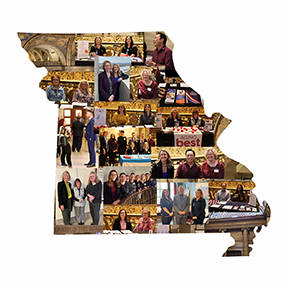Ombudsman Advocacy Day
The federal Older Americans Act established the long-term care ombudsman program and ombudsman mandates. Ombudsman representatives at the state and regional programs fulfill several duties. The following references from the Older Americans Act are most directed toward systems advocacy:
- Represent the interests of residents before government agencies and seek administrative, legal, and other remedies to protect the health, safety, welfare, and rights of the residents;
- Review, comment on existing and proposed laws, regulations, and other government policies and actions, pertaining to resident well-being and rights;
- Facilitate the public’s ability to comment on laws, regulations, policies, and actions;
- Support development of resident and family councils; and
- Carry out other activities the ombudsman determines to be appropriate.
To assure resident interests are represented to the public and lawmakers, ombudsmen:
- Educate advocacy groups, governmental agencies, and policy-makers regarding the impact of laws, policies, or practices on residents;
- Seek modification of laws, regulations, policies, and actions pertaining to the right and well-being of residents;
- Facilitate the ability of residents, resident and family councils, and the public to comment on laws, regulations, policies, and actions;
- Develop or participating in work groups to study an issue;
- Participate in public hearings and forums;
- Provide community education or information; and
- Educate other aging services providers, advocacy groups, and the public on long-term care issues.
Every year the Long-Term Care Ombudsman Program hosts an Advocacy Day. This is where our Regional Ombudsman Coordinators from across the state have the opportunity to speak with their respective legislators on current legislation that affects the quality of life for residents of long-term care facilities.

